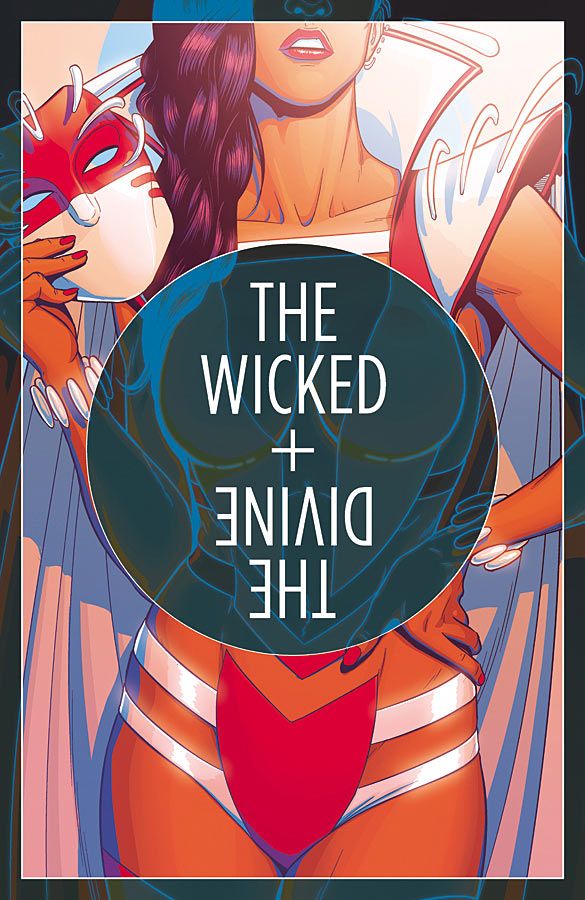In a devastating issue #13, "The Wicked + The Divine" illustrates how new and old oppressions conspire to shut down and shut up female creativity. The story is shockingly heavy, particularly given how Tara's shtick has been eye-rolled thus far, and the creative team handles its weighty subject matter with dignity and power. Guest artist Tula Lotay's world is as gorgeous as it is wounded, while Kieron Gillen's script is tight and tragic. Despite one or two too-easy plot choices, "The Wicked + The Divine" #13 engrosses the reader with one of the most powerful one-shots this year.
I was admittedly surprised when Tula Lotay was announced for the Tara issue, given the characters' reputation for Gaga-esque spectacle and Lotay's more vulnerable, atmospheric work. Having read the issue, though, I can see she's an inspired choice. The issue is captioned by Tara's doubting, hurting monologue, and Lotay captures the confusion and tragedy behind lines like "I'm here for people's pleasure" and "I'm sorry I disappointed you." Even comparing Tara's opening concert to Amateratsu's is so revealing. For Amateratsu, Jamie McKelvie and Matt Wilson drew a giddy, shiny throng of concertgoers; Lotay draws Tara an open-mouthed, sharp-elbowed mob who, though grinning, don't look orgiastic -- they look hungry. Tara's body language as she performs is pained and, in the opening as in the rest of the issue, Lotay shows her great gift for expressive eyes.
Gillen's script follows Tara as she faces the lethal combination of misogyny, the age-old terror, and the new cruelty of social media. He handles his sensitive subject matter tactfully, but without feeling too distant. A few moments are far too on-the-nose, such as Tara asking "Were they really my friends?" or looking directly at a tablet full of cruel tweets before making a decision. However, the details and directness in the rest of the issue help to make these flaws forgivable. The tweets themselves are revealing and disturbing in their familiarity; anyone with even a passing experience in the comments section has seen words like these. The about-face at the end of the issue is even more startling in its accuracy. (Admittedly -- spoilers in this sentence, so skip ahead -- there's definitely something potentially squicky in conflating the problem of suicide, a result of real mental illness, and the wider effects of a misogynist, consuming culture, but the two work in concert here without being placed in a belittling cause-effect formula.)
Most impressively, "The Wicked + The Divine" #13 plays off its own accumulated meanness. From Laura's contemptuous "f*cking Tara" refrain to Luci's barb about "crotch-deep cleavage on a meat dress," Tara has been an off-panel punchline for most of the series. When a story deals with something as openly reprehensible as toxic misogyny, it's tempting to write a hero narrative: here's how the world acts, but watch how our heroes behave better. (See: most stories about racism.) "The Wicked + The Divine," however, doesn't let its characters off the hook. They're all implicated in a culture that collectively demeans and demands of Tara. Laura, for example, could adore Inanna's kindness while simultaneously denying any such kindness to Tara, a perfect stranger. As a result, the critique is much more devastating, revealing and honest.
Letterer Clayton Cowles once again offers up a lovely text treatment. When I describe the treatment for Tara's captions as white journal-style font on an electric blue background, I know it sounds gauche -- but trust me, it works wonderfully, capturing the outward showiness and inward woundedness of the character.
All told, "The Wicked + The Divine" #13 is a compassionate, feminist statement well worth making.

